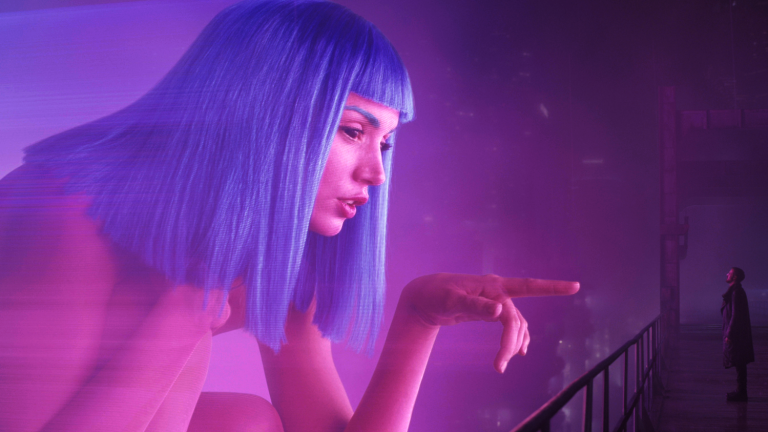This article contains majorBlade Runner 2049spoilers.
Digitally speaking, of course.
A seeming narrative tangent, the relationship between a replicant and a third generation of A.I.

allows this series to go to places other sci-fi narratives about robots could only dream about.
Assuming, of course, that androids dream.
However, youll have to forgive Lt. Joshi for her dismissive ignoranceshes only human.
Hence how viewers discover Joi as the culmination of everything K needs: a post-World War II housewife.
Joi is arguably the lie of technology.
The irony of this scenario is thatBlade Runnerhas reached the endpoint that keeps Elon Musk up at night.
However, as this is the noir-obsessedBlade Runner, there is something appealingly antiquated about her post-war affectation.
At least in Ks hands.
Hes a robot in love, spending his disposable income on a hologram.
This cynicism regarding holograms is pervasive throughoutBlade Runner 2049.
Her creators dont think so.
He also remarks, Pain reminds you of the joy you felt was real.
The on-the-nose word choice obviously echoes the creation of the Joi hologram.
It is a resignation to the idea that there never was any joy for himself.
Theyre an illusion of happiness in their bleak and inescapably joyless world.
So the newfound biases permeating between replicants about younger forms of artificial intelligence in2049are likely just as misguided.
And this is all confirmed by Jois willingness to die for Joe.
If she stayed apart of the console, she would not have died when Luv destroyed Joes remote accessory.
The absence of that joy is what makes their miserable lives as real as tears in the rain.